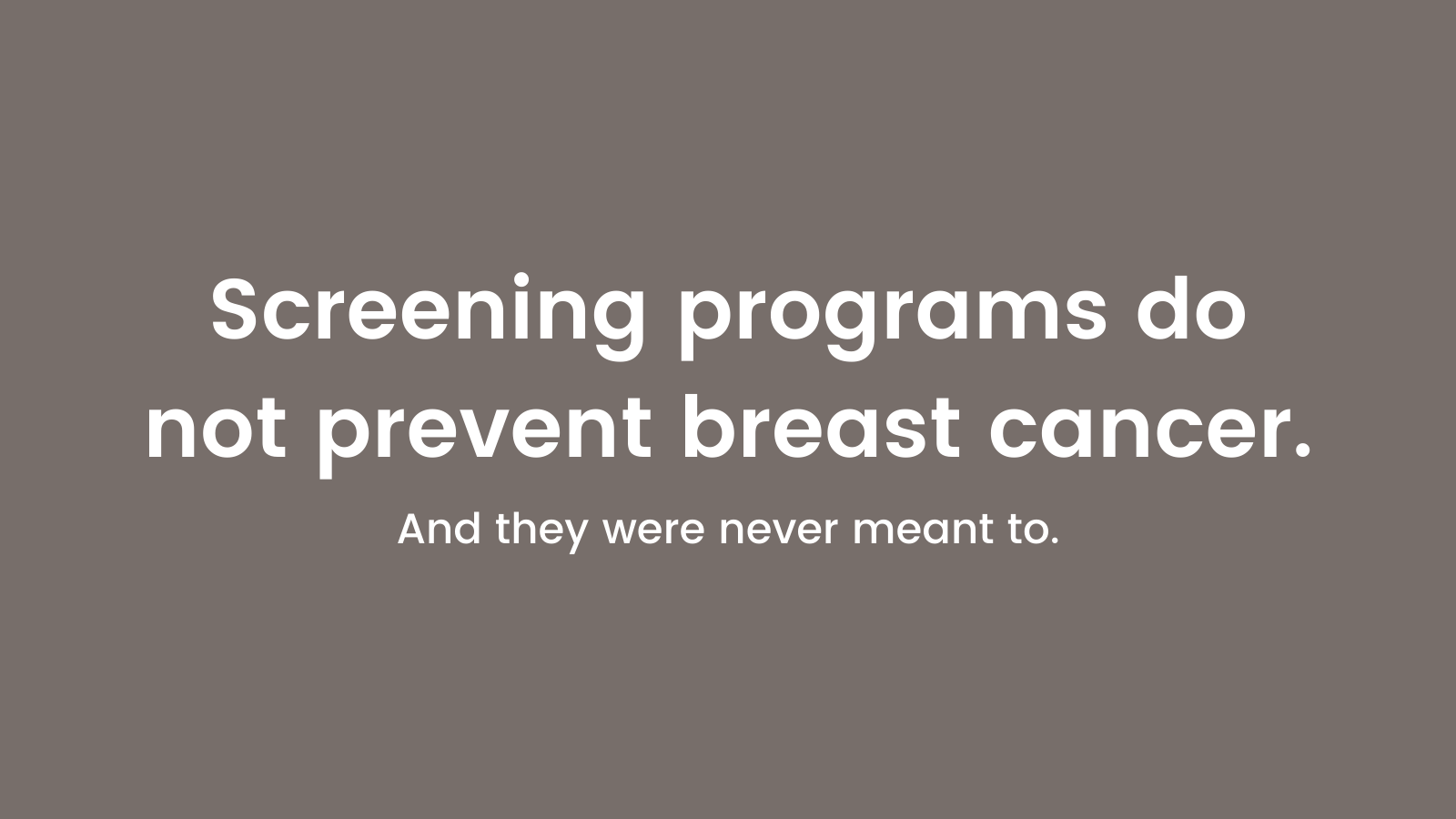Rethink on Breast Cancer Screening (2021)
4 MINS to read

Screening programs do not prevent breast cancer. And they were never meant to.
Some in the community have recently expressed concerns about breast screening guidelines in Canada. And they want screening programs for people of average risk to begin at a younger age.
This is a deeply personal, polarizing and often triggering conversation, especially when navigating a breast cancer diagnosis and wanting to do whatever you can to help yourself and others. We understand that. We are with you on doing whatever we can to fill the gaps and make meaningful change. We also want to make sure the community is aware of some crucial facts that need to be included in this conversation.
Screening programs are a public health intervention for a healthy population. The reality is: screening programs are good for detecting the easiest to treat, early-stage breast cancers.
Screening programs are not effective at detecting the fast-growing, aggressive tumours, which are what many young people with breast cancer are diagnosed with. Triple-negative breast cancer is aggressive. HER2+ breast cancer is aggressive.
It is also important to remember there are many, especially Black, Indigenous and People of Colour, and those living with low-income and in rural-remote populations, who would benefit from accessing our current screening programs and are not due to systemic socio-economic barriers, racism and lack of health equity.
Our healthcare system is in recovery mode from the ongoing pandemic. We need to focus our attention on efforts to help clear the pandemic-induced backlog and reduce barriers to accessing screening for underserved communities.
From a health equity perspective, Canada needs to understand the outcomes of Black, Indigenous and People of Colour with breast cancer and determine whether they have poorer outcomes in Canada. If so, is this due to barriers to accessing a screening program, treatment or primary healthcare? Are their symptoms unexamined or is the cancer subtype more aggressive?
We want to reinforce and encourage you to see the bigger picture, especially when it comes to advocating for those with aggressive or later-stage breast cancers.
Understand your risk and talk to a primary care provider about when to start your screening.
Know your body. Encourage your loved ones to know their bodies, and to self-advocate for diagnostic testing if a change is noticed. We hope you will feel empowered to get any changes checked through a primary care provider.
Our goal has always been to help educate so the community can have a better understanding of the realities of the breast cancer world and our systems, and also empower you in how you use that information. And to advocate to make sure we are guided by the best evidence and understanding of the real-world effectiveness of current breast screening guidelines.
That’s why together with the Canadian Cancer Society and the Canadian Breast Cancer Network, Rethink Breast Cancer has contributed to an op-ed that discusses the reality and truth about breast cancer screening in Canada and we will continue to work together on this issue. We hope you’ll read the op-ed, here.
This is a big topic that is difficult to fit into a blog post, but we hope this helps provide further context to the ongoing conversation and that you have the facts to form your stance.
Learn more about high-risk breast cancer and screening here:
5 Things To Know About Being High-Risk
High-Risk: Know Your Screening Options
Mammography for Breast Cancer Screening: Harm/Benefit Analysis
YSC Response to Changes in American Cancer Society’s Mammography and Clinical Breast Exam Guidelines
Lofters, Aisha K et al. “Understanding those overdue for cancer screening by five years or more: A retrospective cohort study in Ontario, Canada.” Preventive medicine vol. 129 (2019): 105816. doi:10.1016/j.ypmed.2019.105816